The Rottweiler is a large, powerful dog breed with a commanding presence and distinctive black and tan markings. Their athletic build, loyal nature, and working abilities have made Rottweilers popular companions and service dogs.
If you’re interested in the Rottweiler look but want to consider other similar breeds, this guide covers the top 9 dogs that resemble Rottweilers in appearance and temperament.
We’ll explore their origins, sizes, color patterns, and physical traits. You’ll also find expert insight into breed histories, characteristics, and care requirements.
While no other breed perfectly matches the Rottweiler, several share uncanny similarities. Smaller dogs like the Miniature Pinscher and Manchester Terrier mimic Rottie markings on a smaller frame.
The Beauceron and Cane Corso approach Rottweilers in size and proportions. And breeds like the Doberman Pinscher and Hovawart breed have the same elegant, powerful movement.
Discover what makes each of these 9 Rottweiler lookalikes unique, and find your perfect match!
An Overview of the Rottweiler Breed
Before diving into Rottweiler lookalikes, let’s review some key facts about the Rottweiler breed itself:
- Origin: Rottweilers were developed in Germany and descended from ancient Roman drover dogs. Their name comes from the town of Rottweil, where they drove cattle to market.[1]
- Size: Males stand 24-27 inches tall, females 22-25 inches. They weigh 95-135 pounds.[2]
- Colors: Rottweilers are always black with rust or mahogany markings in specific patterns.
- Temperament: Rottweilers are confident, alert, and self-assured. They are loyal and affectionate with their families but reserved with strangers.[3]
- Uses: Originally cattle dogs, Rottweilers now work as police, military, guide, and service dogs. They also compete in many dog sports.
This brief overview provides context before we explore other dogs with similar traits. Keep the Rottweiler’s distinctive profile in mind as you meet its lookalikes!
9 Dogs That Look Like Rottweilers
-
Miniature Pinscher
With its slick short coat and animated demeanor, the Miniature Pinscher looks like a tiny Rottweiler. In fact, its flashy black and tan markings earned it the nickname “Reh Pinscher” – Reh being the German word for deer, referring to the rust coloring.[4]
While Min Pins don’t share any direct genetic lineage with Rottweilers, the two breeds converged on similar looks through shared influences like the German Pinscher. With their upright ears and docked tails, Miniature Pinschers have an uncanny Rottweiler resemblance.
Origin and History
Miniature Pinschers originated as ratters on German farms. Their ancestors likely included Italian Greyhounds and Dachshunds. The Min Pin breed developed informally from the smallest specimens of German Pinschers until becoming officially recognized in 1895.[5]
Size
Min Pins stand 10-12.5 inches tall and weigh just 8-11 pounds. Their compact size suits their vigorous, vermin-hunting instincts.
Color Patterns
While mainly seen in black and tan, Miniature Pinschers also come in chocolate, black, or red. Their sharp facial markings resemble the classic Rottweiler pattern.
Temperament
Don’t let their small size fool you – Min Pins have big personalities! They’re spirited, alert, and energetic. With proper training and socialization, Miniature Pinschers make lively companion dogs.
-
Manchester Terrier
The Manchester Terrier bears more than a passing resemblance to miniature Rottweilers. Their sleek black coats with mahogany tan markings fit the Rottweiler’s signature look.
Manchester Terriers have upright ears that enhance their visual similarity to Rottweilers. They’re packed with personality and make active, amusing pets.
Origin and History
Manchester Terriers originated in England in the 19th century. Breeders crossed the extinct Black and Tan Terrier with the Whippet, aiming to refine the former’s hunting skills.[6]
Size
Standing 15-16 inches tall and weighing 12-22 pounds, Manchester Terriers are a medium-small terrier breed.[7]
Color Patterns
The classic Manchester Terrier sports a jet black coat with rich mahogany markings on the muzzle, chest, legs, and feet.
Temperament
Manchester Terriers are energetic, mischievous, and highly intelligent. They’re natural athletes that excel at agility and love learning tricks. With training, Manchester Terriers thrive as companions.
-
Beauceron,
Hailing from France, the striking Beauceron could easily be mistaken for a more robust Rottweiler. Their signature black and tan harlequin pattern differs from the Rottweiler’s, but their size, build, and manner give them an unmistakable resemblance.
The Beauceron is an adept herding breed with strong protective instincts. They’re loyal guardians that form close bonds with their families.
Origin and History
The Beauceron originated in the French region of Beauce, where they drove and protected sheep. Their history traces back to 1578.[8] Beaucerons played a crucial role on French farms before declining in the early 1900s. The breed has since regained popularity.
Size
These muscular herders stand 24-27.5 inches tall and weigh 66-100 pounds. Males are larger than females.[9]
Color Patterns
Beaucerons display black and tan, black and reddish-brown, or tri-colored coats. The harlequin pattern features gray patches over the back and hips.
Temperament
Beaucerons are confident, intelligent, and energetic. They’re devoted to their families but wary of strangers. Early socialization is critical for this strong-willed breed.
-
Doberman Pinscher
With their sleek build and sharp features, Doberman Pinschers resemble smooth-coated Rottweilers. Both breeds share a black and tan color pattern tracing back to a common ancestor.
Dobermans were bred to be elegant yet fearless protectors. Despite their imposing image, they’re exceptionally loyal pets.
Origin and History
The Doberman Pinscher originated in Germany in the late 1800s. Karl Friedrich Louis Dobermann crossed several breeds, including the Rottweiler, to create an intelligent guard dog and companion.[10] The breed gained popularity through the 1900s as police and war dogs.
Size
Dobermans stand 24-28 inches tall and weigh 60-100 pounds. Males tend to be larger and taller than females.[11]
Color Patterns
Most Dobermans are black and tan or red like Rottweilers. Blue and fawn Dobermans also exist. White Dobermans are rare.
Temperament
Dobermans are highly energetic, obedient, and responsive dogs. Despite myths about aggression, good breeding and training produce Dobermans that are gentle and loving.
-
Hovawart
The striking Hovawart has the coloring and markings of a long-haired Rottweiler. Their name derives from a phrase meaning “estate guardian.” Though rare outside Germany and Europe, Hovawarts make loyal family guardians.[12]
Origin and History
Hovawarts are an ancient German breed first documented in the 13th century. They nearly died out but were revived in the early 1900s using crosses with related breeds like Leonbergers.[13]
Size
Male Hovawarts stand 25-28 inches tall, females 23-26 inches. They weigh 90-100 pounds and up.[14]
Color Patterns
Most Hovawarts are black and gold like Rottweilers. Solid black and blonde coats also occur. They have slightly longer fur with a dense undercoat.
Temperament
Hovawarts are highly devoted to their families, making them excellent watchdogs. They’re also playful, docile, and obedient. Hovawarts need extensive socialization to curb wariness around strangers.
-
Cane Corso
The Cane Corso is often compared to the Rottweiler for its muscular build and dignified bearing. While heavier than Rotties, Cane Corsos share a similar square-proportioned frame and confident presence.
Cane Corsos make loyal companions but require experienced owners to manage their domineering nature.
Origin and History
Cane Corsos hail from Italy, where they worked as property and livestock guardians. Their ancestry includes ancient Roman molosser dogs.[15] The breed nearly became extinct after World War II but revived thanks to dedicated Italian breeders.
Size
These imposing dogs stand 23-27.5 inches tall and weigh 90-120 pounds. Cane Corsos are larger and stockier than most Rottweilers.[16]
Color Patterns
Cane Corso coats come in black, gray, fawn, and red. Brindling of various colors also occurs. They do not have Rottweiler-style markings.
Temperament
Cane Corsos are confident, steady-minded dogs that form close attachments. Without proper training, they can be domineering. Early socialization is essential for this powerful breed.
-
American Pit Bull Terrier
The American Pit Bull Terrier shares some similarities with the Rottweiler, particularly their muscular physique and loyal nature. While Pit Bulls’ color patterns differ, their body type and head structure are reminiscent of a Rottie.
However, Pit Bulls were bred for far different purposes than Rottweilers. While Rotties herd livestock, Pit Bulls sadly became associated with dog fighting due to their athleticism and grip strength. Despite their unfair reputation, well-bred Pit Bulls have delightful temperaments.
Origin and History
The Pit Bull originated in England from crosses between terriers and bulldogs. Immigrants brought them to America, where they were used as all-purpose farm dogs and family companions.[17]
Size
Most Pit Bulls are 17-21 inches tall and weigh 30-60 pounds. There is significant variety based on breeding.[18]
Color Patterns
Pit Bulls come in almost any color. The most common are brindle, black, fawn, white, brown, and tan.
Temperament
Pit Bulls are smart, energetic, and extremely loyal. They crave human interaction and approval. With proper socialization, Pit Bulls make wonderful family pets.
-
Greater Swiss Mountain Dog
The Greater Swiss Mountain Dog’s black, rust, and white coat gives them an unmistakable resemblance to Rottweilers. Though gentle giants, their imposing size and athleticism reflect core Rottweiler traits.
Greater Swiss Mountain Dogs use their strength and agility to drive livestock in the Swiss Alps. They also make steadfast companions and watchdogs.
Origin and History
The Greater Swiss Mountain Dog originated in the Swiss Alps, where they herded cattle and guarded property. Their lineage includes ancient mastiff-type dogs such as the Rottweiler’s ancestors.[19]
Size
Greater Swiss Mountain Dogs stand 23-28 inches tall and weigh 85-140 pounds.[20]
Color Patterns
They have striking black, rust, and white coats. The distinctive white facial markings and chest set them apart from Rottweilers.
Temperament
Despite their size, Greater Swiss Mountain Dogs have gentle, friendly dispositions. They thrive when challenged mentally and physically. This smart breed needs daily activity and attention from their family.
-
Mastiff
While no single mastiff breed closely resembles the Rottweiler, certain types like the Cane Corso and Bullmastiff share some physical similarities. Both Rottweilers and mastiffs descended from ancient molosser dogs used for hunting and warfare across Europe.
Through selective breeding, Rottweilers developed a more versatile herding physique than the bulkier mastiff breeds. However, they retain the strength and loyalty prized in all mastiff-type dogs.
Shared Characteristics
- Powerful, substantial build
- Broad skull and snout
- Confident, steady temperament
- Protective instincts
Differences
- Rottweilers have more athletic, upright structure
- Most mastiffs have loose skin and heavier bone
- Mastiffs come in colors other than black and tan
- Rottweilers are more energetic than giant mastiff breeds
Popular Mastiff Breeds
- Bullmastiff
- Cane Corso
- English Mastiff
- Neapolitan Mastiff
So while not identical, both Rottweilers and mastiff breeds make loyal guardians and family companions.
What About Miniature Rottweilers?
Many dog lovers wonder if miniature Rottweilers exist. Due to their popularity, some disreputable breeders claim to sell “dwarf” or “teacup” Rottweilers standing under 18 inches tall.
In truth, miniature Rottweilers are genetically impossible. No ethically bred Rottweiler will be drastically smaller than the breed standard. Tiny dogs advertised as mini Rotties are either purebreds with health issues or poorly bred mixes.
If you love the Rottweiler look but want a smaller dog, consider breeds like the Miniature Pinscher and Manchester Terrier instead. Avoid dishonest breeders selling undersized puppies and promoting harmful breeding practices.
Rottweiler Mixed Breeds
Mixed breed dogs with Rottweiler lineage often closely resemble purebred Rottweilers, inheriting the signature black and tan markings.
Common Rottweiler crosses include:
- Rottweiler/German Shepherd – Intelligent and loyal with a distinctive saddle pattern
- Rottweiler/Doberman – Athletic build and rust markings
- Rottweiler/Labrador Retriever – Friendly nature and black coat with tan accents
- Rottweiler/Boxer – Stocky and energetic with a black mask
- Rottweiler/Pit Bull – Powerful and devoted with a broad head
Reputable shelters and rescues can match you with a Rottweiler mix. Be sure to meet both parents whenever possible before adoption.
With their distinctive looks and temperament, Rottweilers make their presence known even in mixed breed dogs!
Choosing Your Rottweiler Lookalike
When selecting from these Rottweiler lookalikes, keep both appearance and personality in mind. Consider your lifestyle and experience with dogs.
While breeds like the Miniature Pinscher simply mimic the Rottweiler’s coat colors, others like the Doberman Pinscher share much of its working dog temperament.
Be sure to research each breed’s exercise needs, grooming requirements, and tendency toward dominance or aggression. Never choose a dog based on looks alone!
Most importantly, commit to professional training and early socialization. All dogs need structure, consistency, and socialization to be well-adjusted, obedient companions.
By selecting the right breed for your home and investing time in training, you’re sure to end up with your perfect “Rottweiler” lookalike as a lifelong friend!
References:
[1] “Rottweiler History and Origins.” American Kennel Club,
www.akc.org/dog-breeds/rottweiler/detail/.
[2] “Rottweiler Dog Breed Information and Personality Traits.” Hill’s Pet Nutrition, www.hillspet.com/dog-care/dog-breeds/rottweiler
[3] “Rottweiler: Temperament & Personality.” Rottweiler Club of Canada, www.rottclub.ca/rottweiler/temperament/.
[4] Coile, Caroline. “Miniature Pinscher”, Kennel Club Books, 2003
[5] “Miniature Pinscher History.” American Kennel Club,
www.akc.org/dog-breeds/miniature-pinscher/detail/
[6] O’Neill, Amanda. “Manchester Terrier”, Kennel Club Books, 2006.
[7] “Manchester Terrier Dog Breed Information.” American Kennel Club,
www.akc.org/dog-breeds/manchester-terrier/
[8] Marvin, John T. “The New Beauceron”, Kennel Club Books, 2007.
[9] “Beauceron.” American Kennel Club,
www.akc.org/dog-breeds/beauceron/.
[10] Taylor, David B. “The Doberman Pinscher”, Arco Publishing, 1980.
[11] “Doberman Pinscher Dog Breed Information.” American Kennel Club,
www.akc.org/dog-breeds/doberman-pinscher/.
[12] Dennler, Robert. “The Hovawart”, Arco Publishing, 1999.
[13] “Hovawart.” American Kennel Club,
www.akc.org/dog-breeds/hovawart/
[14] “Hovawart Dog Breed Information and Personality Traits.” Hill’s Pet Nutrition, www.hillspet.com/dog-care/dog-breeds/hovawart
[15] De Prisco, Andrew and Johnson, James B. “The Cane Corso”, Kennel Club Books, 2004.
[16] “Cane Corso Dog Breed Information.” American Kennel Club,
www.akc.org/dog-breeds/cane-corso/.
[17]Stahlkuppe, Joe. “American
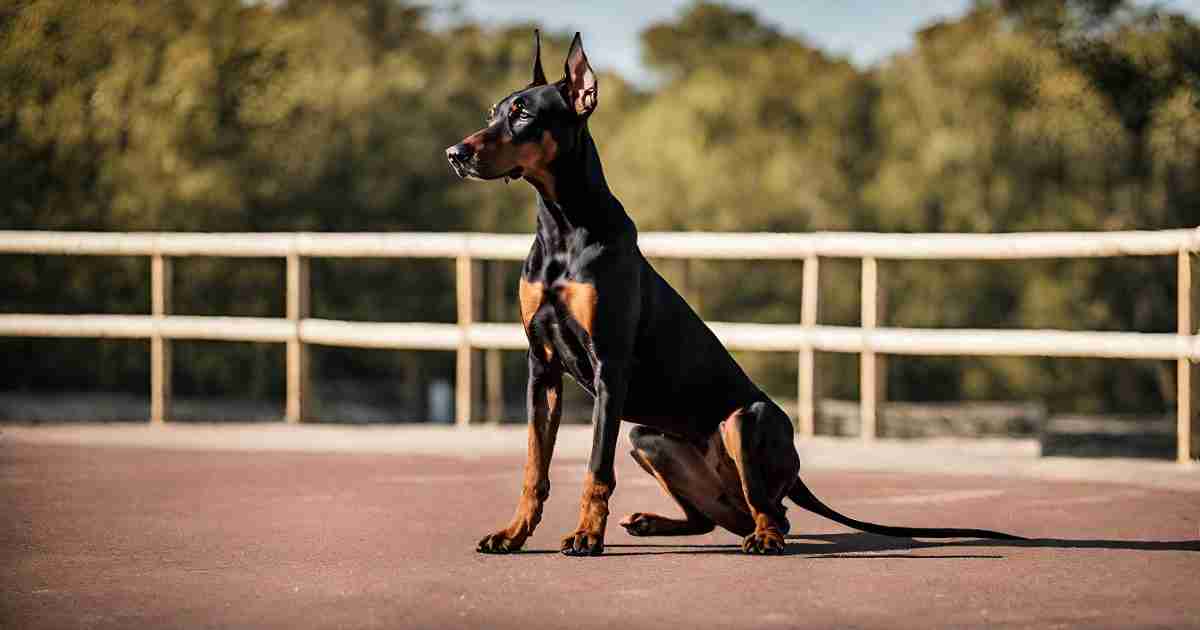
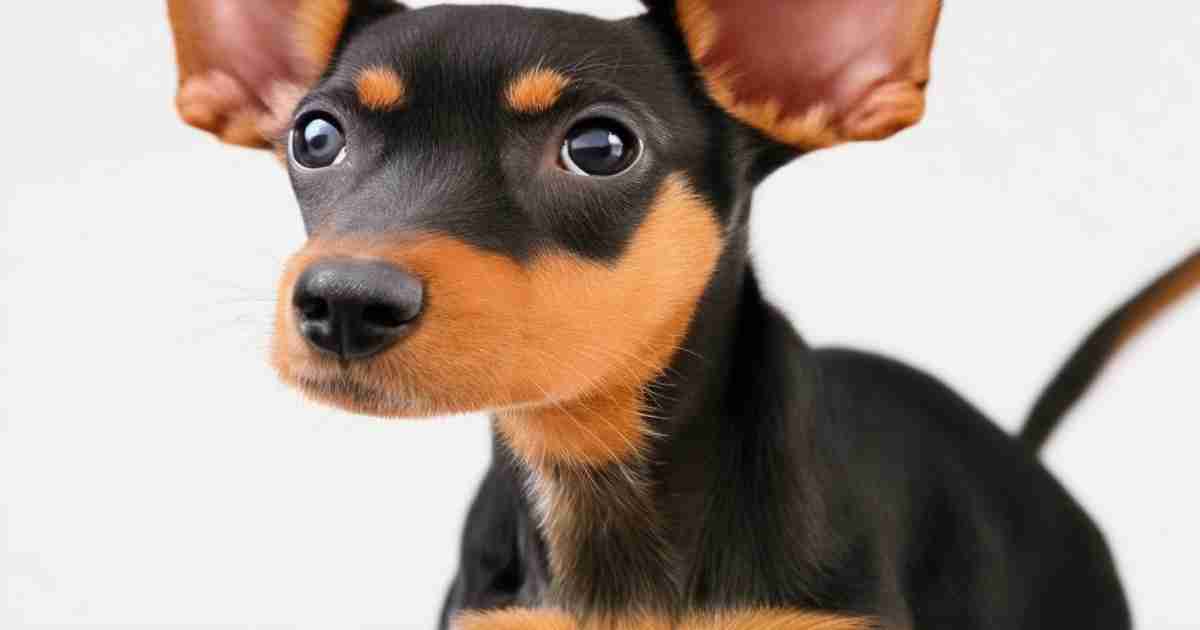
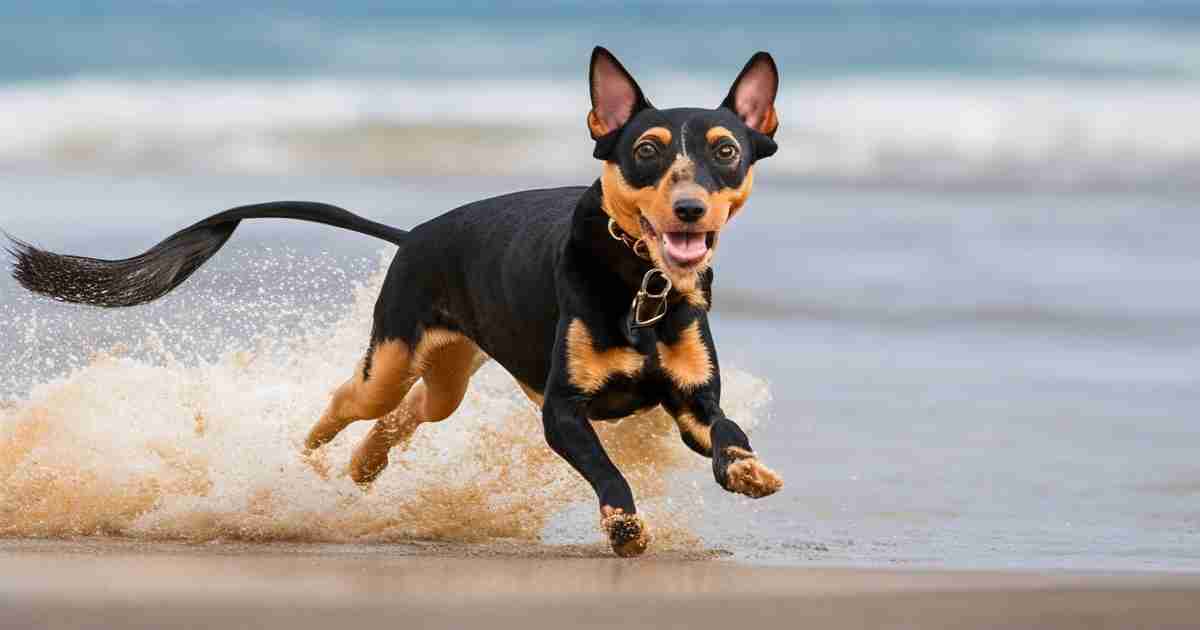
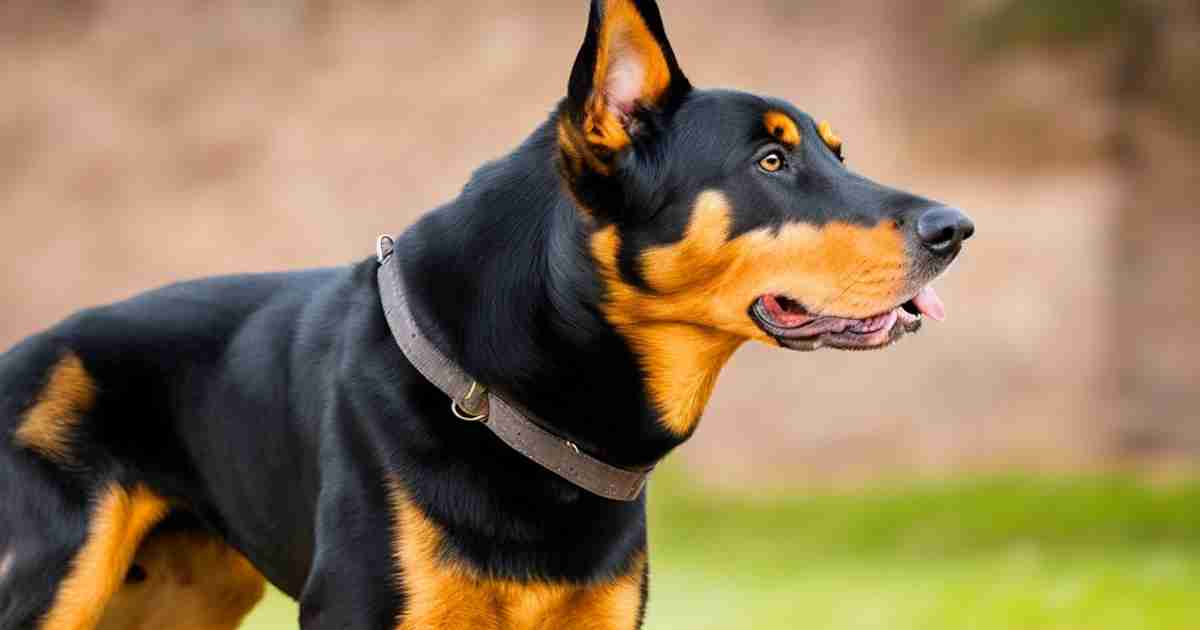
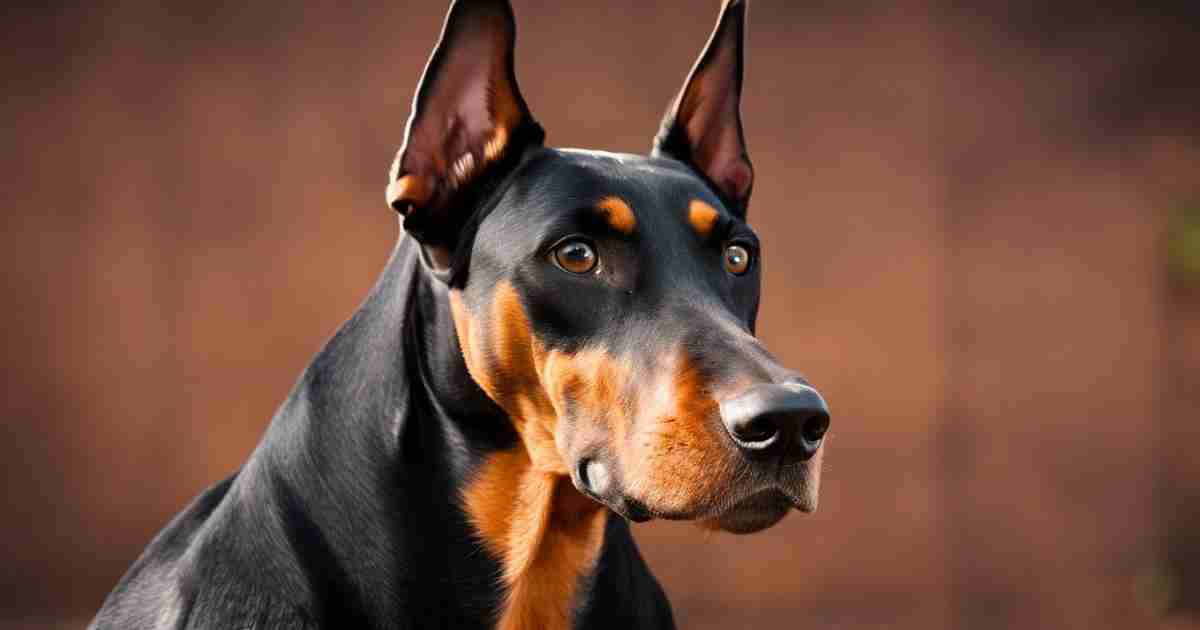
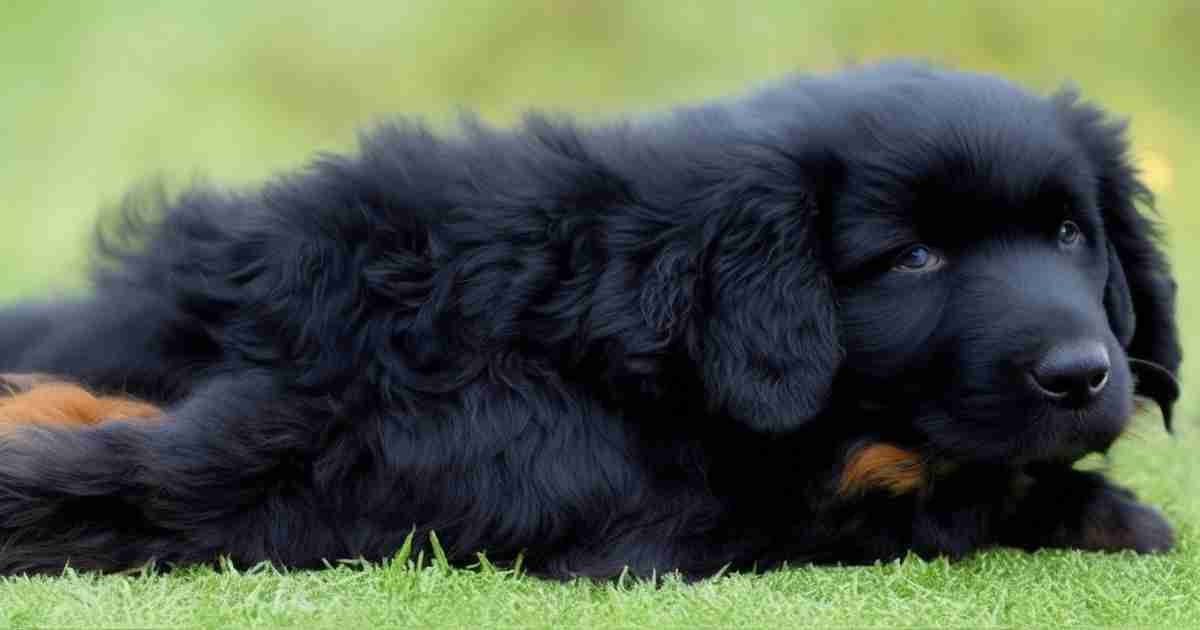
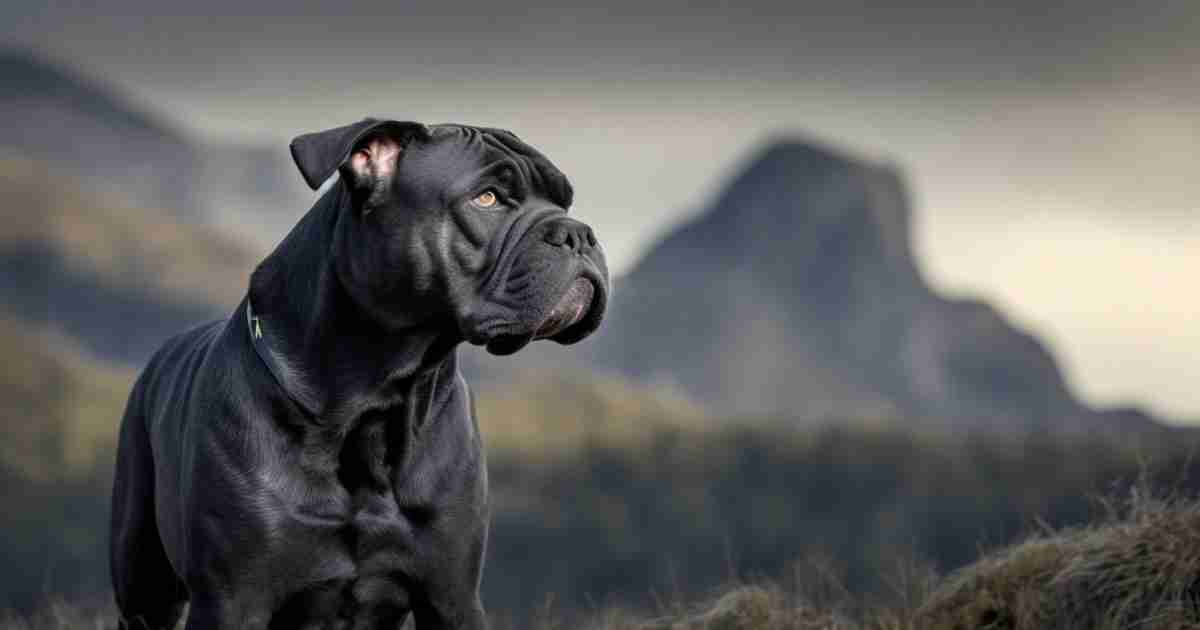
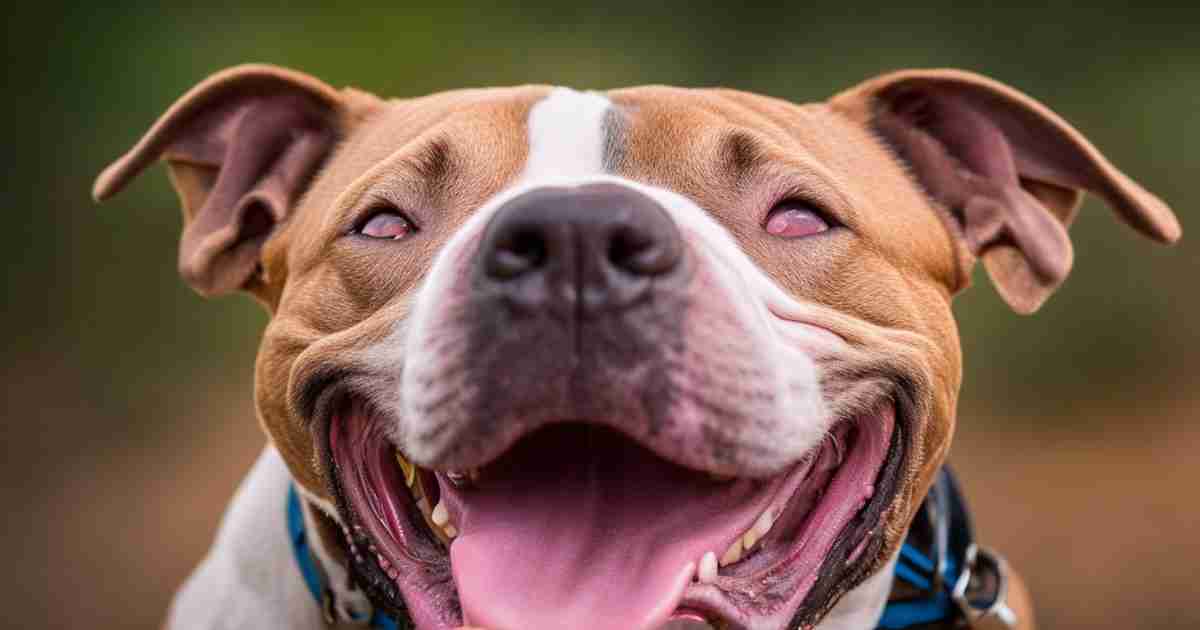
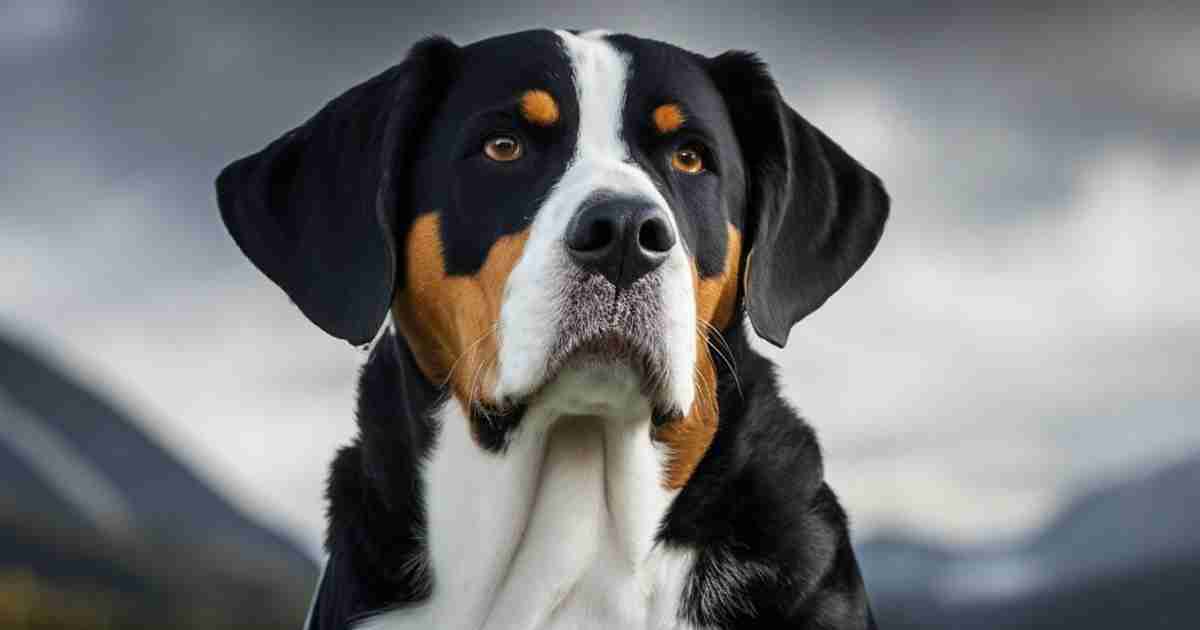
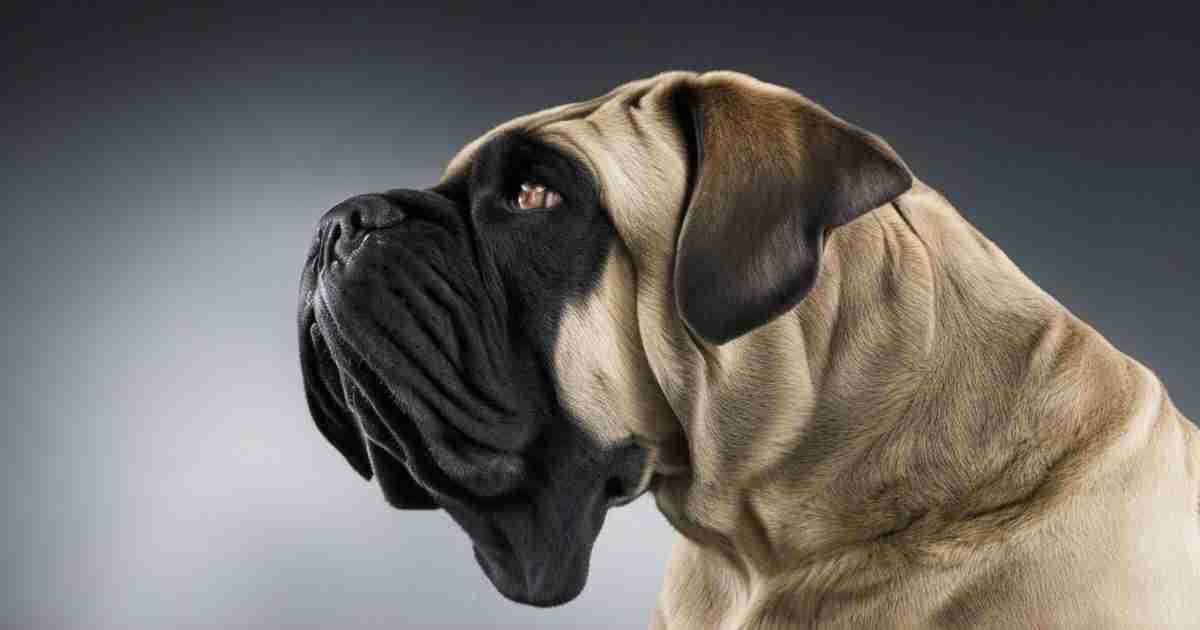
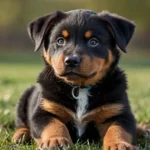
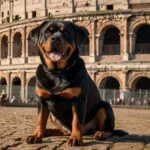
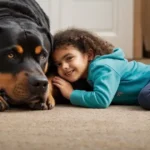
1 thought on “Top 9 Common Breeds of Dogs That Look Like Rottweilers”